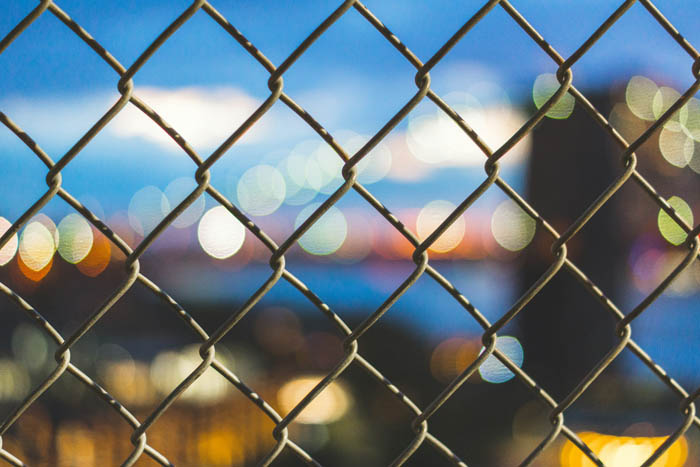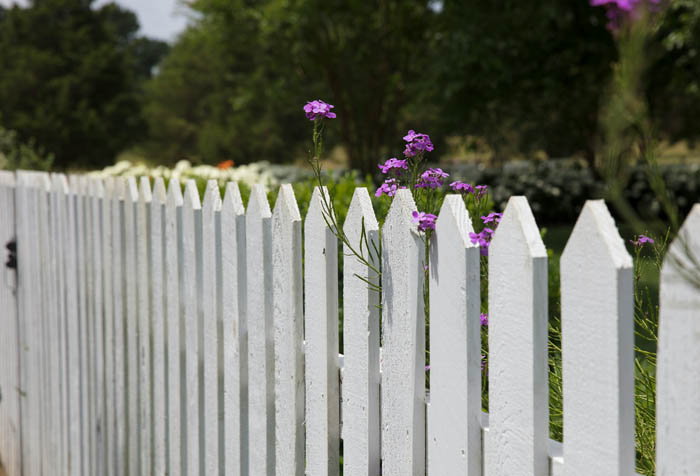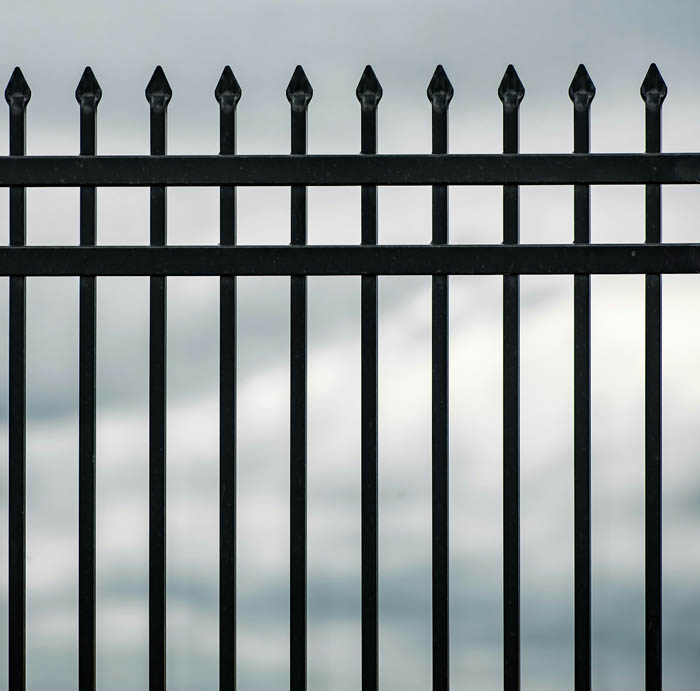Weighing the Pros and Cons of Different Types of Fencing Materials
Choosing the Perfect Fencing Material: A Look at Different Options
Are you in the market for a new fence but unsure which material is the best fit for your needs? In this article, we will walk you through the pros and cons of different types of fencing materials, helping you make an informed decision.
Fencing materials come in a wide range of options, each with its own set of advantages and disadvantages. From traditional wood to low-maintenance vinyl, from durable aluminum to old-school wrought iron, there is a perfect fence for every homeowner.
Wooden fences offer a timeless and rustic appeal, while vinyl fences require minimal upkeep and are resistant to rot and pests. Aluminum fences, on the other hand, combine elegance and strength, making them an excellent choice for both residential and commercial properties. Chain link fences are an affordable option while wrought iron is timeless and classic.
By considering factors such as budget, maintenance requirements, and desired aesthetics, you can confidently choose the perfect fence for your property. So let’s dive in and explore the pros and cons of various fencing materials, allowing you to make an informed decision for your home.
Factors to Consider When Choosing a Fencing Material
When choosing a fencing material, there are several factors that you should take into consideration. These factors will help you determine the best material for your specific needs and preferences.
Budget: One of the first factors to consider is your budget. Different fencing materials come with different price tags, so it’s important to determine how much you are willing to spend on your fence. Keep in mind that while some materials may have a higher upfront cost, they may require less maintenance and have a longer lifespan, ultimately saving you money in the long run.
Maintenance requirements: Another important factor to consider is the maintenance requirements of the fencing material. Some materials, such as wood, may require regular staining or painting to maintain their appearance and protect them from the elements. On the other hand, vinyl and composite materials are generally low-maintenance and only require occasional cleaning.
Durability: The durability of the fencing material is also an important consideration. Depending on your specific needs, you may want a fence that can withstand harsh weather conditions or one that is resistant to pests and rot. Aluminum and vinyl are known for their durability, while wood may require more maintenance to ensure its longevity.
Aesthetics: The aesthetics of the fencing material should also be taken into account. Different materials offer different styles and finishes, so it’s important to choose a material that complements the overall look of your property. Whether you prefer the natural and rustic look of wood or the sleek and modern appearance of aluminum or vinyl, there is a fencing material that will suit your taste.
Considering these factors, you can narrow your options and choose a fencing material that meets your specific needs and preferences.

Photo by Martin Olsen on Unsplash
Maintenance Requirements for Different Fencing Materials
The maintenance requirements for different fencing materials vary greatly. Some materials require regular upkeep, while others are virtually maintenance-free. Let’s take a closer look at the maintenance requirements for the most common fencing materials.
Wood: Wooden fences require regular maintenance to keep them looking their best. This typically involves staining or painting the wood every few years to protect it from the elements and prevent rot. Additionally, wooden fences may need to be inspected for any signs of damage or wear and repaired as needed. While wood requires more maintenance compared to other materials, many homeowners appreciate the natural and timeless look that it provides.
Vinyl: Vinyl fences are known for their low maintenance requirements. Unlike wood, vinyl does not require staining or painting. It can simply be cleaned with soap and water to remove any dirt or debris. Vinyl fences are also resistant to rot and pests, making them a popular choice for homeowners looking for a hassle-free option.
Aluminum: Aluminum fences are also low-maintenance and require little upkeep. They are resistant to rust and do not need to be painted or stained. Occasional cleaning with soap and water is typically all that is needed to keep an aluminum fence looking its best. This makes aluminum an attractive option for homeowners who want a durable and low-maintenance fence.
Chain Link: Chain link fences are affordable and durable, and offer a clear view of the surroundings outside of the yard. They are low maintenance and can last for many years. While they may be the most common choice for homeowners, they lack privacy and security, and are not the best looking choice.
Wrought Iron: Wrought iron fences are timeless and classic, and also offer durability and security. They can be expensive to install and maintain, and also lack privacy.
It’s important to consider the maintenance requirements of different fencing materials before making a decision. While some materials may require more upkeep, they may also offer other benefits such as durability or aesthetics.
Pros and Cons of Wood Fencing
Wooden fences offer a classic and timeless look that many homeowners find appealing. However, they do come with their own set of pros and cons. Let’s take a closer look at the advantages and disadvantages of wood fencing.
Pros:
Aesthetics: Wood fences are known for their natural and rustic beauty. They can enhance the overall look of your property and blend seamlessly with the surrounding landscape. Wood also offers versatility in terms of design options, allowing you to customize the fence to your preferences.
Affordability: Wood is generally a more affordable fencing material compared to options like vinyl or aluminum. If you are working with a limited budget, a wood fence may be the most cost-effective choice.
Easy to work with: Wood is a relatively easy material to work with, making it a popular choice for DIY enthusiasts. If you enjoy taking on home improvement projects, installing a wood fence can be a rewarding experience.
Cons:
Maintenance: One of the biggest drawbacks of wood fencing is the maintenance it requires. Wood fences need to be regularly stained or painted to protect them from the elements and prevent rot. This ongoing maintenance can be time-consuming and costly.
Durability: While wood can be a durable material, it is more susceptible to damage from weather conditions, pests, and rot compared to other materials like vinyl or aluminum. This means that wood fences may not last as long as fences made from more durable materials.
Prone to warping and splitting: Over time, wood fences may warp or split, especially if they are not properly maintained. This can affect the appearance and structural integrity of the fence.
Despite the maintenance and durability concerns, many homeowners still choose wood fencing for its natural beauty and affordability. If you are willing to invest the time and effort into maintaining a wood fence, it can be a great option for your property.

Photo by Randy Fath on Unsplash
Pros and Cons of Vinyl Fencing
Vinyl fencing has gained popularity in recent years due to its low maintenance requirements and durability. Let’s explore the pros and cons of vinyl fencing.
Pros:
Low maintenance: Vinyl fences are virtually maintenance-free. Unlike wood, they do not require staining or painting. Vinyl can simply be cleaned with soap and water to remove any dirt or debris.
Durability: Vinyl is a highly durable material that is resistant to rot, pests, and harsh weather conditions. It can withstand the test of time and retain its appearance for many years.
Variety of styles: Vinyl fences come in a wide range of styles, colors, and textures, allowing you to choose a fence that matches your home’s aesthetic. Whether you prefer a traditional picket fence or a modern privacy fence, there is a vinyl option to suit your taste.
Cons:
Higher upfront cost: Vinyl fencing tends to have a higher upfront cost compared to wood. However, the minimal maintenance requirements and long lifespan of vinyl can make it a cost-effective choice in the long run.
Limited customization options: While vinyl fences come in various styles, they may not offer the same level of customization as wood fences. If you have specific design preferences, you may find that vinyl options are more limited.
Potential for fading: Over time, vinyl fences may fade due to exposure to sunlight. While this does not affect the functionality of the fence, it can impact the appearance.
Despite the higher upfront cost, many homeowners opt for vinyl fencing due to its low maintenance requirements and long-lasting durability. If you value convenience and want a fence that will stand the test of time, vinyl may be the right choice for you.
Pros and Cons of Aluminum Fencing
Aluminum fences offer a combination of elegance and strength, making them a popular choice for both residential and commercial properties. Let’s explore the pros and cons of aluminum fencing.
Pros:
Durability: Aluminum fences are highly durable and can withstand harsh weather conditions without rusting or deteriorating. This makes them a great option for areas with extreme weather.
Low maintenance: Like vinyl fences, aluminum fences require minimal maintenance. They do not need to be painted or stained and can simply be cleaned with soap and water.
Versatility: Aluminum fences come in a variety of styles and can be customized to fit your specific needs. Whether you’re looking for a decorative fence or a simple and functional one, aluminum offers versatility in design.
Cons:
Higher upfront cost: Aluminum fences tend to have a higher upfront cost compared to other materials like wood or vinyl. However, their durability and minimal maintenance requirements can make them a cost-effective choice in the long run.
Limited privacy: Aluminum fences are typically designed with spacing between the pickets, offering limited privacy compared to other types of fences. If privacy is a top priority for you, aluminum may not be the best option.
Not ideal for containment: While aluminum fences are great for marking boundaries and enhancing the look of your property, they may not be the best choice for containing pets or children. The spacing between the pickets can allow small animals or children to squeeze through.
Despite the higher upfront cost, many homeowners choose aluminum fencing for its durability, low maintenance requirements, and versatile design options. If you prioritize strength and elegance, an aluminum fence may be the perfect choice for your property.
Pros and Cons of Chain-Link Fencing
Chain-link fencing is a popular option for homeowners looking for an affordable and functional fencing solution. Let’s explore the pros and cons of chain-link fencing.
Pros:
Affordability: Chain-link fencing is one of the most affordable options available. If you have a limited budget, a chain-link fence can provide a cost-effective solution.
Durability: Chain-link fences are highly durable and can withstand harsh weather conditions. They are resistant to rot and pests and can last for many years with minimal maintenance.
Visibility: Chain-link fences offer visibility, allowing you to keep an eye on your property and easily monitor any activity happening outside.
Cons:
Limited privacy: One of the biggest drawbacks of chain-link fencing is its limited privacy. The open design of the fence allows for visibility, but it also means that anyone passing by can see your property.
Aesthetics: Chain-link fences are not known for their aesthetic appeal. If aesthetics are important to you, you may want to consider other options that offer a more attractive look.
Lack of security: While chain-link fences can provide a level of security by marking boundaries, they are not the most secure option. They can be easily climbed or cut through, making them less effective in deterring trespassers.
Chain-link fencing is a practical and budget-friendly option for homeowners who prioritize affordability and functionality over aesthetics and privacy. If you need a fence to mark boundaries and keep pets or children contained, a chain-link fence may be the right choice for you.
Pros and Cons of Wrought Iron Fencing
Wrought iron fencing offers a classic and elegant look that can enhance the curb appeal of any property. Let’s explore the pros and cons of wrought iron fencing.
Pros:
Aesthetics: Wrought iron fences are known for their timeless and elegant appearance. They can add a touch of sophistication to any property and are often considered a symbol of luxury.
Durability: Wrought iron fences are incredibly durable and can withstand harsh weather conditions. They are resistant to rot and pests and can last for many years with proper maintenance.
Security: Wrought iron fences provide a high level of security, making them a popular choice for homeowners concerned about safety. The sturdy nature of wrought iron makes it difficult for intruders to climb or break through.
Cons:
Higher upfront cost: Wrought iron fences tend to have a higher upfront cost compared to other materials. The intricate design and craftsmanship involved in creating a wrought iron fence contribute to its higher price tag.
Maintenance: Wrought iron fences require regular maintenance to prevent rust and keep them looking their best. This typically involves sanding, priming, and repainting the fence every few years.
Limited privacy: Similar to aluminum fences, wrought iron fences offer limited privacy due to the spacing between the pickets. If privacy is a top priority for you, you may need to consider other options.
Despite the higher cost and maintenance requirements, many homeowners choose wrought iron fencing for its timeless elegance and security. If you want a fence that will make a statement and enhance the overall look of your property, wrought iron may be the perfect choice for you.

Photo by Jake Nackos on Unsplash
Conclusion and Final Thoughts
Choosing the perfect fence for your property requires careful consideration of various factors, including budget, maintenance requirements, and desired aesthetics. Wood fences offer a natural and rustic appeal but require regular maintenance. Vinyl fences are low-maintenance and durable, making them a popular choice for many homeowners. Aluminum fences combine elegance and strength, while chain-link fences provide an affordable and functional option. Wrought iron fences offer a classic and elegant look but come with a higher upfront cost and maintenance requirements.
By weighing the pros and cons of different fencing materials, you can make an informed decision that suits your specific needs and preferences. Whether you prioritize affordability, low maintenance, durability, or aesthetics, there is a perfect fence out there for you. So take the time to explore your options and choose the fencing material that will enhance the beauty and functionality of your property for years to come.
Featured Photo by Cordell Kingsley on Unsplash

